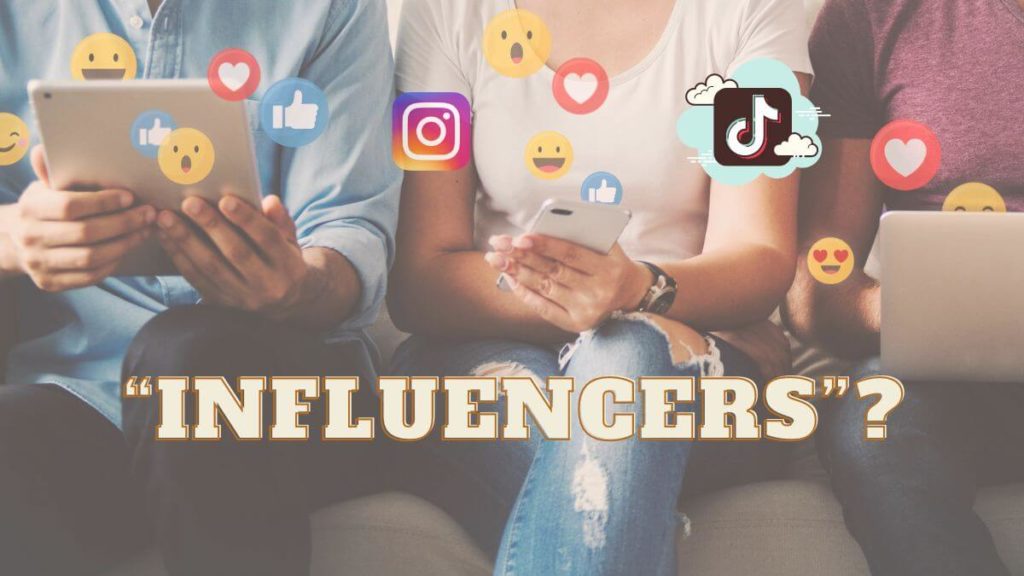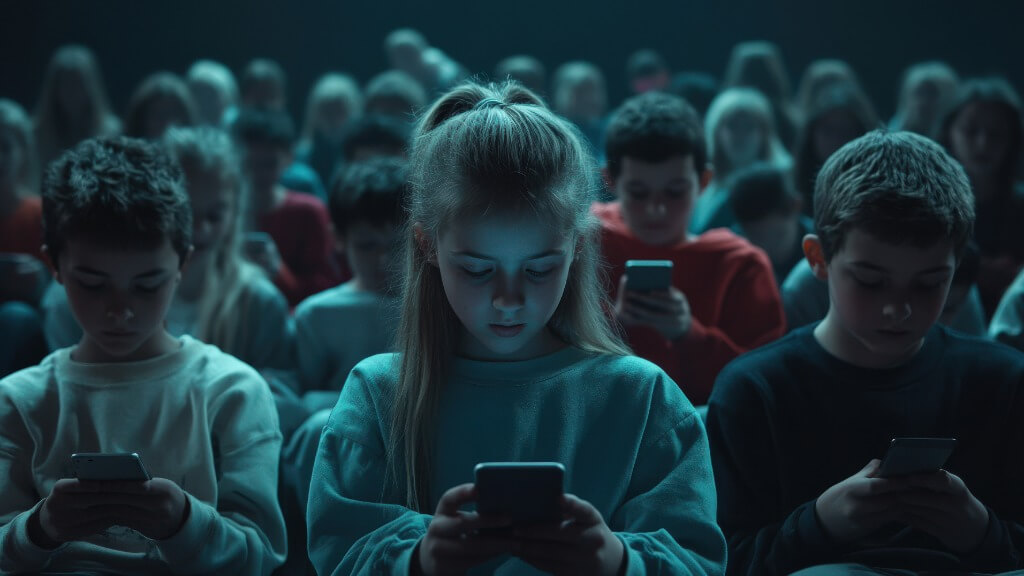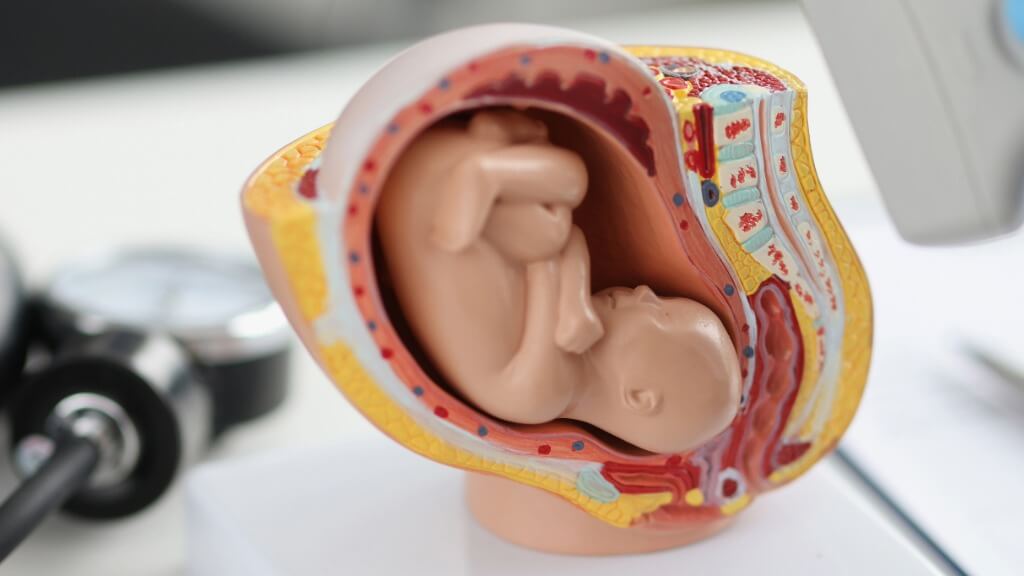Olivia Boyd is our teenage guest writer who is very passionate about supporting the pro-life movement and ending human trafficking. Upon completion of her High School education, she intends to study law and psychology. She has an interest in human rights and social psychology, and is an active member of the PragerForce group for students and young professionals. Olivia will be contributing articles to Family First this year as part of her Duke of Edinburgh award.
Please read Olivia’s article on social media influencers …
Social media ‘influencers’ – a note to my teenage peers
In our modern world, everyone seems glued to their phones. We’re constantly checking the news, what our friends are up to or what our favourite influencer has posted. Social media is a place where we share the highlights of our lives for our friends to see. We also find ourselves attracted to influencers and content creators who have made a profession out of showing us what is trending, and causing us to perhaps desire those things or be more like them. Influencers aren’t necessarily experts on any given subject, they just create content that people watch and are often sponsored by brands and companies that want to reach a certain niche. There are so many of them that you can find multiple influencers for any topic or interest no matter how obscure it may be. YouTube, Instagram, and TikTok are occupied by thousands of influencers who are seeking to create an income stream and make a name for themselves.
Due to the ‘up-close and personal’ nature of this kind of format, influencers seem more real and unfiltered when compared to many celebrities. This level of connectivity with their audience, brought about by actions like interacting with fans in the comments or recording content in their own homes, draws people in and oftentimes a person will feel emotionally connected to that influencer. Many influencers will use familiar language in their videos so the audience feels like they are friends with them. What may start as interest in the life hacks or beauty tutorials an influencer might be posting will evolve into caring about the personal life of the influencer. This level of personal connection you may feel with them will encourage you to keep coming back to their content.
If we’re so interested in the lives of influencers, doesn’t it follow that we begin to take their advice on more than what we clicked on their video for? Gaming influencers might start mentioning who they voted for in an election and why. Their opinions on more important issues start to matter, even though they aren’t more knowledgeable about a particular issue than the average person, and more often than not, their views are governed by values that are against traditional views that have stood the test of time.
The dangers of having such an attachment to influencers can be severe. Some influencers have been found to have convinced their followers to set up OnlyFans accounts where they can sell explicit images of their bodies online. These influencers show off their thousands of dollars they earn per month, when in reality the average OnlyFans account earns $180 per month. Some young girls have heard these lies and obtained false IDs to get the app, which is extremely dangerous and can lead to child sexual exploitation and sex trafficking.(1) This may sound like an extreme example, but it all starts with a slippery slide into allowing influencers to have a greater voice in your life than what they should ever be permitted to have.
There are many more issues with influencers persuading their followers into harmful behaviours. On TikTok there is reportedly a sudden epidemic of girls with Tourette’s syndrome. Some doctors are calling it a “mass psychogenic illness” because it is spreading with no physical or environmental reason. Girls are picking up tics from influencers with the syndrome and it has spread around the world because of the global nature of the app. Anxiety, stress, depression and hopelessness seem to be the common denominator among the girls who it is affecting. The tics that are spreading include swearing uncontrollably, hitting themselves violently and experiencing seizures.(2) Again, what appears to be an extreme example can also be a wake-up call to us to be aware of the highly impressionable stage of life we are in during our teens, and to keep watch over what we allow to come into our lives via our phones.
I recently watched a few episodes of “Keeping Up with the Kardashians” for the first time, purely out of curiosity. The Kardashians have a worldwide audience, and have created a powerful brand for themselves. Their unrealistic body images from their multiple plastic surgeries and their drama-filled family doesn’t exactly give us something to aspire to, yet they continue to make headlines and hold considerable sway in our culture. They have become more than just social media influencers, but serve as an example of how we should ask ourselves exactly what they are influencing people to be and to believe.
It’s worth taking a step back and doing some honest self-reflection with a degree of discernment to consider what social media accounts are really worth following. Or maybe keeping influencers in the place they should have and not blindly believing and following everything they say and do. Instead of looking at the lives of influencers constantly, we ourselves can find our own voice and the right space to share it. There’s nothing that can replace face-to-face time with friends and family and wrestling life’s issues out with others. The less hold that social media has over us the better, and the less likely we are to get addicted to it.
Social media and along with it, the diverse world of influencers, is here to stay. Although social media is not entirely bad in itself, the sheer volume of information that is available to us in our impressionable teenage years is vast and we should think about what we are allowing to come into our minds and hearts. Having strong core values will set us up to navigate this minefield that our parents never had to. Finding your own voice, and using it to make a difference in the things that really matter, is a far better course to set as we transition into adulthood.
(1) www.prageru.com/video/mia-khalifa-and-the-onlyfans-phenomenon
(2) www.prageru.com/video/is-tiktok-causing-a-tourettes-epidemic-in-young-women-4-13-2022




